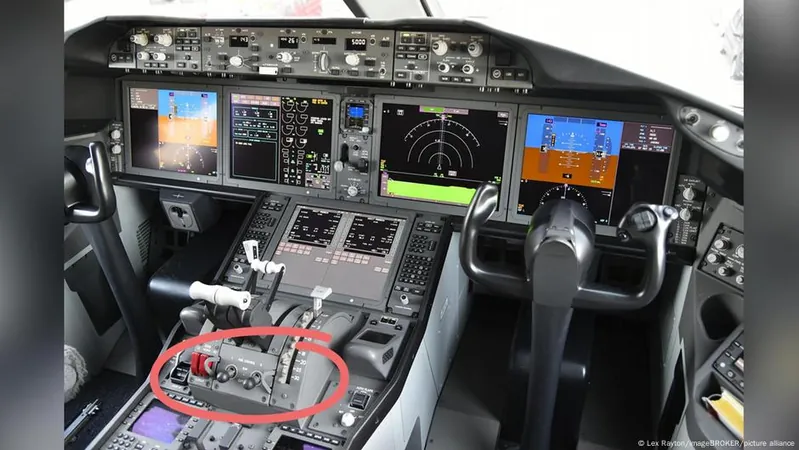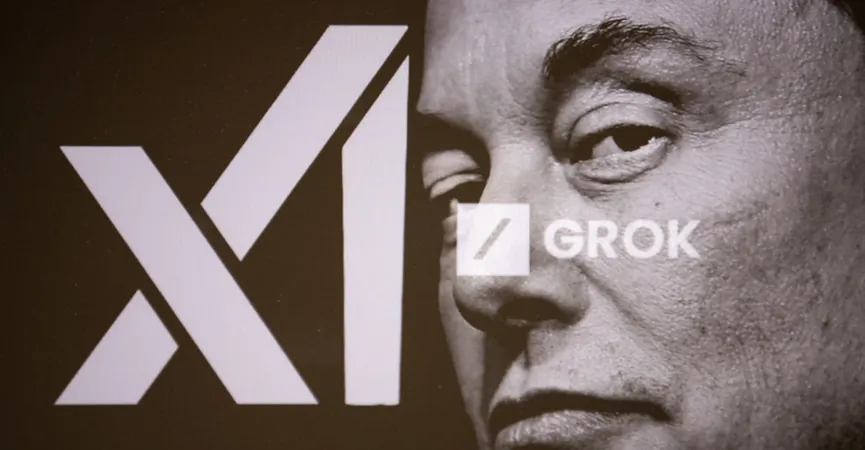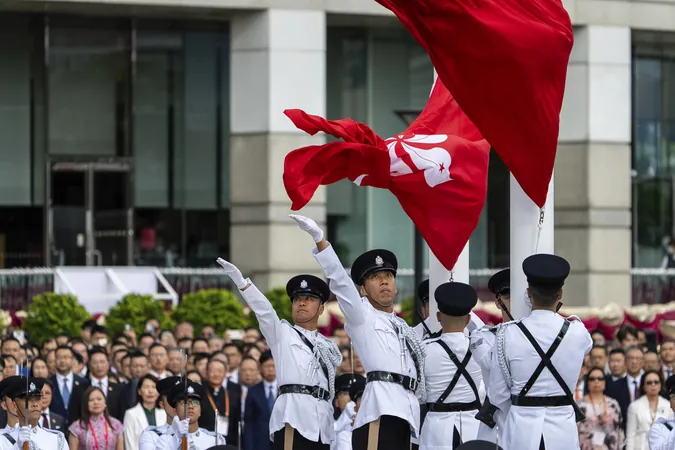
Boeing Faces Intense Scrutiny After Devastating Air India Crash
2025-07-15
Author: Kai
A Tragic Incident Sparks Global Concerns
In a chilling reminder of the vulnerabilities in air travel, Boeing is once again under international scrutiny following a catastrophic crash involving an Air India 787-8 Dreamliner. The tragic incident, which occurred shortly after takeoff from Ahmedabad, resulted in the loss of nearly 20 lives, including 19 on the ground and all but one of the 242 passengers aboard.
Fuel Switch Dilemma
Indian investigators continue to probe the causes of this accident, which stands as the deadliest aviation disaster in a decade. A preliminary report from India's Aircraft Accident Investigation Bureau (AAIB) indicates that the fuel switches for both engines abruptly moved to the 'cutoff' position post-takeoff, leading to a fuel deprivation crisis. It remains unclear whether this was the result of pilot error or a mechanical failure.
Confusion in the Cockpit
Capturing the harrowing moments in the cockpit, the AAIB noted that conversations between the pilots suggest bewilderment; one pilot inquired about the other’s actions regarding the fuel cutoff, to which the second pilot denied any wrongdoing. This unsettling ambiguity is fueling speculation and deepening the investigation's complexity.
Expert Analysis Raises More Questions
Aviation expert Sanjay Lazar emphasized the report's inadequacies, stating it raises crucial questions that need answers. He criticized the lack of a complete transcript from the cockpit, which could illuminate essential factors in the ongoing inquiry. As the investigation pivots towards Boeing's fuel intake mechanisms, it's vital to acknowledge previous FAA directives from 2018 and 2022 that recommended inspections due to potential faults in these switches.
Air India’s Stance Amidst Controversy
Air India has admitted to overlooking the non-mandatory directive from 2018, and it is yet to clarify actions taken regarding the 2022 mandate. Despite replacing the throttle control module earlier in 2023, the reasons for this change had no connection to the fuel control switch, according to the AAIB.
Corporate Assurance and Response
Boeing has reportedly assured various airlines about the safety of their fuel switch locks, yet doubts linger following the Air India crash. Air India’s CEO, Campbell Wilson, urged caution against premature conclusions as investigations are ongoing, asserting all maintenance checks were completed and that fuel quality was not an issue.
Global Reactions to Safety Measures
In light of the incident, airlines across Japan and Singapore have initiated their own fuel switch inspections, with confirmations of normal operations from their fleets. Meanwhile, Indian regulators are expected to deliver their findings soon, but a comprehensive final report could take over a year.
Calls for Transparency in Investigations
The Airline Pilots' Association of India has demanded inclusion as observers in the investigation, expressing concern over a potentially biased narrative that presumes pilot guilt. The president of ALPA India stated that their involvement is crucial for achieving transparency.
Boeing's Ongoing PR Crisis
The fallout from the Air India crash arrives amidst a turbulent history for Boeing, which has struggled to rehabilitate its image following two previous fatal accidents involving the 737 Max. With an array of smaller incidents also recorded, including midair emergencies among its aircraft, Boeing's reputation continues to face significant challenges.
Whistleblower Concerns and Industry Implications
Whistleblower allegations of safety lapses and production issues within Boeing add another layer of complexity to the narrative, raising critical questions about the integrity of the manufacturer’s safety protocols. The recent tragic demise of former employees who had raised concerns underscores the gravity of this situation, amplifying calls for robust safety practices ahead.
As investigations develop, all eyes are on Boeing — the time for accountability and transparency has never been more critical in securing public confidence in air travel.



 Brasil (PT)
Brasil (PT)
 Canada (EN)
Canada (EN)
 Chile (ES)
Chile (ES)
 Česko (CS)
Česko (CS)
 대한민국 (KO)
대한민국 (KO)
 España (ES)
España (ES)
 France (FR)
France (FR)
 Hong Kong (EN)
Hong Kong (EN)
 Italia (IT)
Italia (IT)
 日本 (JA)
日本 (JA)
 Magyarország (HU)
Magyarország (HU)
 Norge (NO)
Norge (NO)
 Polska (PL)
Polska (PL)
 Schweiz (DE)
Schweiz (DE)
 Singapore (EN)
Singapore (EN)
 Sverige (SV)
Sverige (SV)
 Suomi (FI)
Suomi (FI)
 Türkiye (TR)
Türkiye (TR)
 الإمارات العربية المتحدة (AR)
الإمارات العربية المتحدة (AR)